HS-ETS1-2
Design a solution to a complex real-world problem by breaking it down into smaller, more manageable problems that can be solved through engineering.
-
 Tech
TechHeadphones or earmuffs could replace needles in some disease testing
A new system that uses earmuffs to collect gases coming out the skin could help doctors diagnose a variety of diseases, scientists say.
By Sid Perkins -
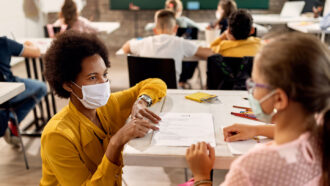 Health & Medicine
Health & MedicineWhat is the role of in-person classes in COVID-19’s spread?
New data haven’t shown that schools pose a big coronavirus risk to kids and their families, despite fears that they might.
-
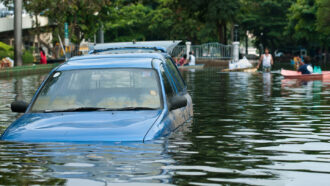 Environment
EnvironmentWarming cities may see more rain — and frequent flooding
Scientists are seeking to understand why and how to mop up excess precipitation.
-
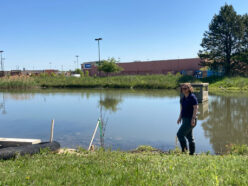 Earth
EarthStores and malls buy into ponds and rain gardens for flood control
An extra bonus: These rainy-day ponds clean up that dirty water running off parking lots.
-
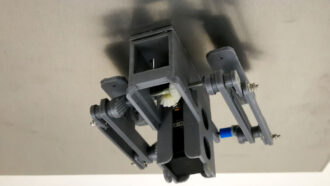 Chemistry
ChemistryNew glue offers to turn any small walking robot into Spider-Man
To climb walls, robot feet need to alternately stick and let go. A novel adhesive can do that. Its stickiness is controlled by electric fields.
By Shi En Kim -
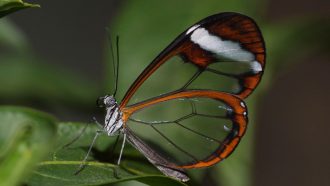 Animals
AnimalsUncovering secrets of the glasswing butterfly’s see-through wings
The tricks of its transparency include sparse, spindly scales and a waxy coated membrane.
-
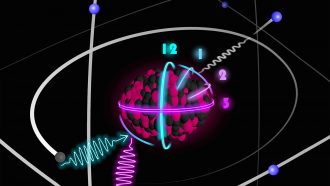 Physics
PhysicsNuclear clocks are nearly here
More precise clocks could improve technologies such as GPS and help scientists test major ideas in science.
-
 Health & Medicine
Health & MedicineWill we all need COVID-19 booster shots?
Experts say not yet, but booster vaccines may be coming as new SARS-CoV-2 virus variants keep emerging.
-
 Tech
TechSleep-friendlier lighting is on the way
Chemists have created a new glowing material for LEDs. It should lessen how much near-bedtime lighting impairs your ability to nod off.
By Manasee Wagh -
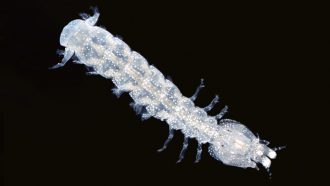 Tech
TechMantis shrimp inspires somersaults of new soft robot
Its rolling acrobatics allow this robot to move especially swiftly — much as a fictional new Disney character can.
-
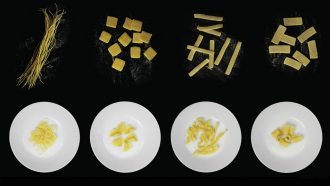 Materials Science
Materials Science‘Smart’ pasta morphs into fun shapes as it cooks
The trick to this shape-shifting are grooves cut into the raw pasta. Those grooves affect how the noodles swell as they cook.
-
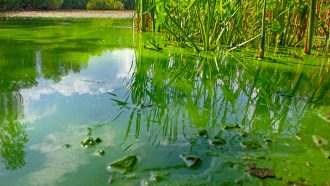 Environment
EnvironmentPond scum can release a paralyzing pollutant into the air
New study finds blooms of blue-green algae can seed the air with a poisonous pollutant.